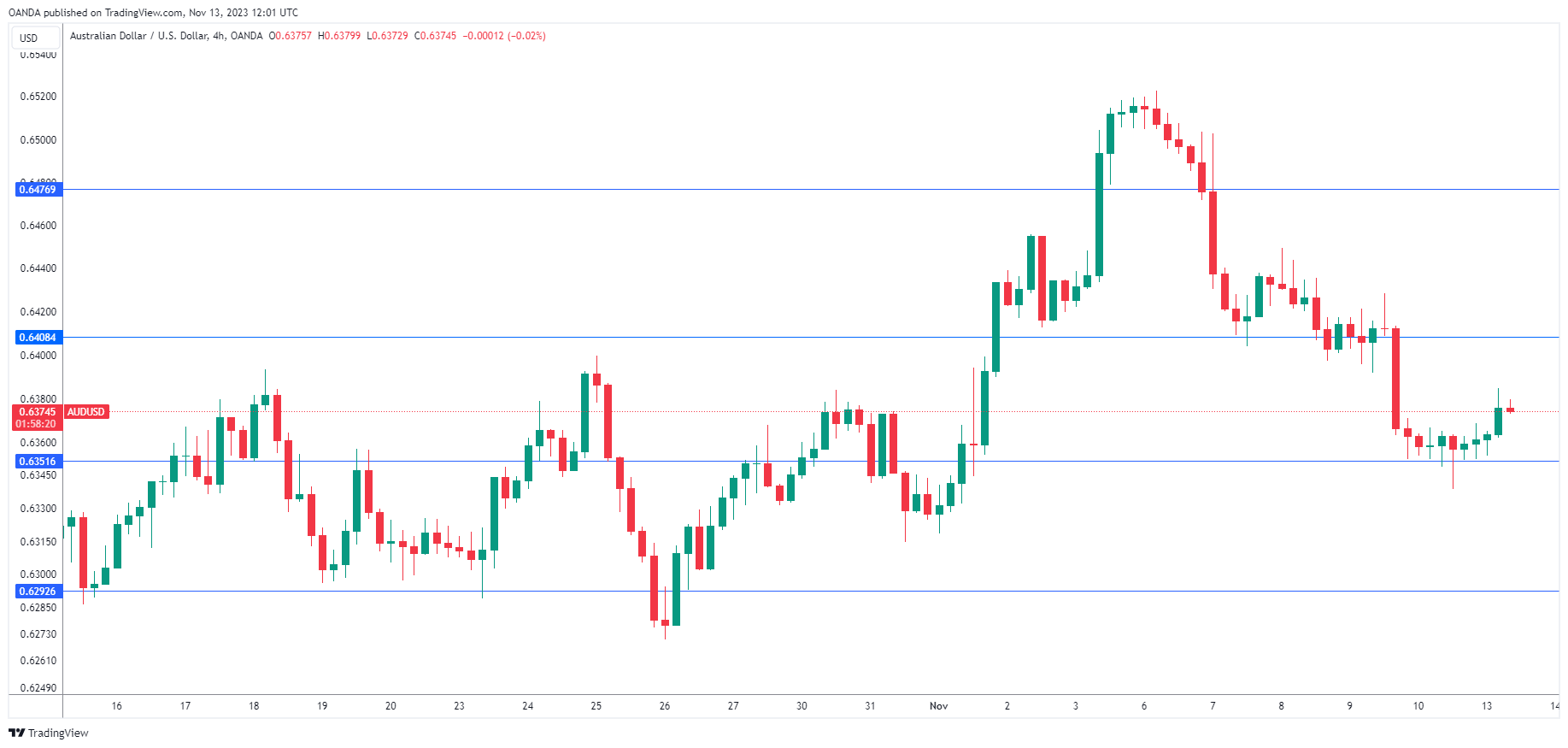- Australian dollar breaks five-day losing streak
- Business, consumer confidence will be released on Tuesday
The Australian dollar has edged higher on Monday. In the European session, AUD/USD is trading at 0.6376, up 0.27%. The Aussie has snapped a five-day losing streak in which it declined 2.35%.
Australian Dollar Eyes Business, Consumer Confidence
Australia will release consumer and business confidence data on Tuesday. Consumers remain deeply pessimistic, although the Westpac Consumer Sentiment index climbed 2.9% in October to 82, its highest level in six months. The 100 level separates pessimism from optimism. Consumers have been squeezed by stubbornly high inflation and elevated interest rates. The market consensus for November is 0.7%, which would raise the index slightly to 82.6.
Business confidence remains well below average and the NAB Business Confidence index is expected to remain unchanged at 1 in October. The zero level separates pessimism from optimism. Business conditions are in better shape but fell from 14 to 11 in September.
Is the Reserve Bank of Australia done with its tightening cycle? The central bank raised rates last week after four consecutive pauses but the Australian dollar fell sharply after the move. The markets were of the view that the RBA had raised the bar to further hikes, even though the RBA statement noted that inflation was still too high.
The RBA quarterly monetary policy statement, released on Friday, warned of risks to the upside for inflation, and the hawkish tone may have helped the Aussie stabilize today after a miserable week. The RBA meets next on December 5th and the October inflation report a week earlier could play a key role as to whether the RBA pauses or raises rates at the final meeting of 2023.
In the US, the Michigan Consumer Sentiment index, released on Friday, eased to 60.4 in November, down from 63.8 in October and shy of the market consensus of 63.7. Confidence fell as consumers’ long-term inflation expectations rose from 3.0% to 3.2% in November, the highest level since 2011. The Fed is in a pickle as inflation expectations are rising while consumer confidence is falling, which is likely to translate into weaker consumer spending.
AUD/USD Technical
- AUD/USD is putting pressure on support at 0.6351. Below, there is support at 0.6292
- 0.6408 and 0.6476 are the next resistance lines


